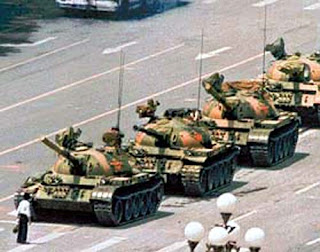After more than 150 years of British presence and protection, Bahrain gained full independence on August 15, 1971. The agreement granting independence contained no provision for British defense in an emergency, but it did provide for consultation. British authorities hoped that Bahrain, the most economically and socially advanced of the small gulf states, might take the lead in a federation similar to that of the UAE, but both Bahrain and Qatar opted instead for complete independence. Shaykh Isa ibn Salman Al Khalifa, leader of the Al Khalifa since the death of his father in 1961, became the newly independent country's first amir and continued as the hereditary ruler in 1993.

The constitution designates the amir supreme commander of the armed forces. In 1977 Isa ibn Salman chose his eldest son and heir apparent, Hamad ibn Isa Al Khalifa, to be minister of defense and commander in chief of the Bahrain Defense Force (BDF). In 1988 the former chief of staff, Major General Khalifa ibn Ahmad Al Khalifa, was named minister of defense, but Hamad ibn Isa retained the position of commander in chief in 1993. Other members of the Al Khalifa in prominent military positions include the new chief of staff, Brigadier General Abd Allah ibn Salman Al Khalifa, as well as the assistant chief of staff for operations, the chief of naval staff, and the commander of the air force. As in other gulf states, the ruling family keeps a tight hold on important positions in the national security structure.
The BDF is principally dedicated to the maintenance of internal security and the protection of the shores of the Bahrain archipelago. Nevertheless, with the rise of tensions in the Persian Gulf, the force has nearly tripled in size since 1984 and has added significantly to its inventory of modern armaments. Its total personnel strength in 2005 was about 11,000: army, 8,500; navy, 1000; and air force, 1500.
Defense expenditures, which reached a peak of US$281 million in 1982, fell off sharply before gradually rising again to US$237 million in 1992. Because of its declining revenue from oil, the amirate has fewer resources available for defense than the more prosperous gulf states. The GCC had allotted Bahrain and Oman a special subsidy of US$1.8 billion between 1984 and 1994. Bahrain's share enabled it to purchase new fighter aircraft and to construct its new air base.
At the time of the British withdrawal in 1971, the United States leased port and docking facilities from the government of Bahrain for the United States Middle East Force. This was, in fact, an extension of a United States-British agreement, in effect since the late 1940s, enabling United States naval vessels to use facilities at Al Jufayr, a port section of the capital, Manama.
The agreement was a sensitive one because none of the Arab states of the gulf wanted to appear to be submitting to any new form of colonialism or to be too closely associated with the United States, the main supporter of Israel. In 1977 the amir's government terminated the lease. The headquarters of the United States Middle East Force was compelled to move aboard one of the three ships that constituted the force. Otherwise, little changed as a result of the termination of the lease. United States ships- -with the aid of a support unit manned by about sixty-five United States naval personnel--were still permitted to use Bahraini port facilities for naval operations in the gulf to ensure the availability of fuel, communications, and supplies.
During the Iran-Iraq War, when attacks on gulf shipping threatened Bahrain's oil refining and tanker servicing operations, United States personnel and military cargoes were permitted to transit the region via Bahrain International Airport. Large barges in Bahraini waters were used as bases for United States attack helicopters, radar, and air defense weapons. In October 1991, Bahrain signed a defense cooperation agreement with the United States similar to that previously concluded between the United States and Kuwait. The agreement provided for port access, equipment storage, and joint exercises.
www.globalsecurity.com
No comments:
Post a Comment